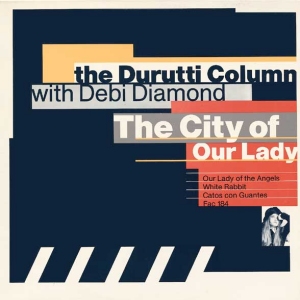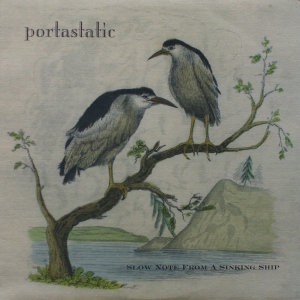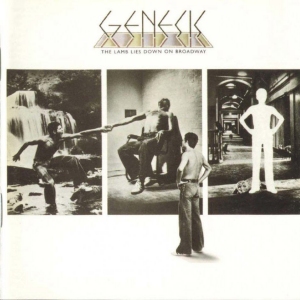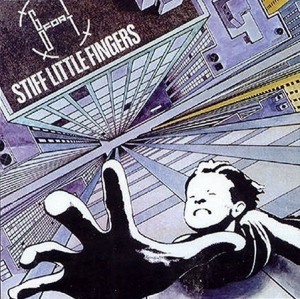16. The Durutti Column with Debi Diamond - The City of Our Lady - Factory, 1987

Why I Bought It: I recognized the band name and saw that it was released on Factory, so I figured it was worth a shot.
Verdict: After I put the record on, I realized that it was a three-song EP and likely ran at 45 rpm, but I let the first song, “Our Lady of the Angels,” play out at 33 rpm anyway. It came off as a moody, almost Joy Division-esque instrumental. Their cover of Jefferson Airplane’s “White Rabbit” was not nearly as forgiving, since guest vocalist Debi Diamond* sounded like an extra dour Peter Murphy. The flipside of the LP is a lengthy Spanish-tinged instrumental called “Catos con Guartes,” which features intricate acoustic guitar patterns rather than chorus-heavy chords. This EP comes off as a complete hodge-podge with three disparate styles present, but each song—even the cover of “White Rabbit,” which I anticipated grimacing through—has some redeeming value.
* In the process of trying to determine who Debi Diamond’s identity, I learned that she is not the adult film star Debi Diamond but rather the former singer of the Januaries known by the name Debbie Diamond. After solving this mystery, I found out that former Durutti Column guitarist Dave Rowbotham was killed by an axe murderer in 1991. To confuse matters even further, a different Dave Rowbotham has an entry in my beloved HockeyDB as a former member of the Ottawa 67s and the Binghamton Whalers.
17. Portastatic - Slow Note from a Sinking Ship - Merge, 1995

Why I Bought It: I primarily enjoy Superchunk’s Foolish-and-forward discography, so a more low-key affair from Mac McCaughlin would seem to hit the spot. If I were being really sassy, I’d say that I’m a Seam completist. If memory serves, I picked this up as a used LP during one of my trips up to Reckless in Chicago.
Verdict: Slow Note from a Sinking Ship certainly starts off like I expected, with “Your Own Cloud” moving along with only acoustic guitar, Casiotone, and Mac’s signature yelp, but many of the songs are full-fledged indie rock jams. “San Andreas,” “You Can’t Win,” “A Cunning Latch,” and “The Great Escape” may not compete with “Driveway to Driveway,” “Slack Motherfucker,” and “Hyper Enough” in the pantheon of McCaughlin, but they’re solid rockers nonetheless. The best song is “Pastime,” which blends the space of the quieter songs with the pulse of the rockers. Slow Note from a Sinking Ship was a pleasant surprise, sounding less like a bedroom solo record and more like a relaxed take on Superchunk’s mid-period sound.
18. Genesis - The Lamb Lies Down on Broadway - ATCO, 1974

Why I Bought It: I grew up on post-Gabriel Genesis and post-Genesis Peter Gabriel. Yet their 1970s prog-rock efforts always seemed too “out there” for me as a fourth grader, so I stuck to Genesis, Invisible Touch, and Security. I’ve never been particularly embarrassed by my fondness for Genesis’s super-cheese era, even writing a column on it in the Signal Drench days, but I’ve also never made a genuine attempt to check out their early work. After picking up Gabriel’s swansong The Lamb Lies Down on Broadway and its 1976 follow-up, A Trick of the Tail, for a slightly higher price than the dubbed cassettes I’d make of my uncle’s Genesis CDs growing up, I’ll finally confront those confusing demons standing in the way of Genesis’s critically acclaimed pop albums. Wait, you mean the prog-rock albums are the good ones?
Verdict: I’ve tried my best to understand the vague story of The Lamb Lies Down on Broadway: there’s a half-Puerto Rican hooligan named Rael who’s struggling on the streets of New York who gets sucked into an unfamiliar underworld, cocooned in a subterranean cave/cocoon, encounters his brother John, escapes the cave, visits a consumerist people factory, finds his way back up to bizarre NYC, remembers his first sexual encounter, reaches a room with 32 doors (but only one exit!), makes his way through that room with the help of a blind woman, meets Death, makes his way to a pool with three snake women who die after tasting his blood, he then consumes the bodies of these snake women and turns into a Slipperman (covered with stumps and exterior genitalia), meets a colony of Slippermen including his brother John who have all encountered the same fate, makes a visit to Doktor Dyper who can castrate their problems, has his “tube” stolen by a black raven, chases after this raven, watches both the tube and his brother fall into roaring rapids, decides to mount up the courage to save his brother, dives into the rapids, and realizes that his brother is only part of himself.
Can you believe that Peter Gabriel pulled many of these ideas from his dreams? It’s more of a surprise that lines like “No time for romantic escape / When your fluffy heart is ready for rape. No!” (“Back in N.Y.C.”) and “Erogenous zones I love you / Without you, what would a poor boy do?” (“Counting Out Time”) make relative sense within this context. Recapping the story in the long-winded liner notes also helps, but there are certainly moments that slip away from the immediate storyline.
Despite the lyrical oddities, it’s hard not to be awed by the scope of The Lamb Lies Down on Broadway, which perhaps signifies achievement as a double LP of progressive rock. It may not maintain my attention throughout—the second LP is littered with aimless instrumental passages—but “Back in N.Y.C.,” “Fly on a Windshield,” “The Carpet Crawlers,” and the title track are sonically diverse high points. Still, I can’t make a judgment on such a sprawling affair after only one listen, especially without being privy to Gabriel’s live theatrics. It’s certainly more serious than Genesis or Abacab, but it’s nowhere near as approachable.
19. Stiff Little Fingers - Go for It - Chrysalis, 1981

Why I Bought It: After thinking about the band name for a minute or two, I remembered the scene in High Fidelity when Dick, the shy record clerk, impresses a chick by talking about Green Day’s two primary influences: The Clash and Stiff Little Fingers. While influencing Green Day is hardly an accomplishment that will sway a dollar bin decision, being associated with The Clash and releasing a record in 1981 will.
Verdict: While Green Day might’ve been influenced by both The Clash and Stiff Little Fingers, they were essentially influenced twice by The Clash, since Stiff Little Fingers’ mix of punk, reggae, and rock owes a considerable debt to Strummer, Jones, and company. While some songs stick out from the fray—“Gate 49” is a sunny escape, “The Only One” rumbles along with dub precision, “Safe as Houses” has solid hooks—most fall in line with London Calling-inspired punk with power pop underpinnings. It’s a bit strange that Gordon Ogilvie, the band’s manager, co-wrote most of the tracks, but he was a consistent participant in their early records. Perhaps I would have been better off with their 1979 debut, Inflammable Material, which was inspired by the Troubles in Northern Ireland. Go for It is certainly competent and largely enjoyable, but I’d prefer more passionate, more immediate material.
20. Tangerine Dream - Cyclone - Virgin, 1978

Why I Bought It: Not sure. I’m familiar with their unfortunate name, but little else about Tangerine Dream. Did I like the album cover and take a chance? Who knows.
Verdict: Apparently Cyclone alienated Tangerine Dream’s fan base by including vocals and lyrics for the first time. I completely understand this reaction, since the vocals on side A distract from what otherwise would be an interesting mix of electronic pulses, keyboards, brass, guitars, and drums. The vague stories and processed shouting of “Bent Cold Sidewalk” and “Rising Runner Missed by Endless Sender” seem like a dedicated push into the progressive rock domain, but the group isn’t capable of maintaining instrumental focus while incorporating vocals. The background music gets considerably less interesting whenever vocals arrive, simplifying the layers in order to give the vocals space. It also doesn’t help that the vocals are so high in the mix, leaving the drums muffled in the distance.
The flip side, however, is an entirely different story. The thankfully instrumental “Madrigal Meridian” extends for more than twenty minutes, the bulk of which is dominated by a Neu!-esque backbone of electronic bass arpeggios and propulsive drumming. The band members take turns playing melodic runs with a wide variety of instruments (the number of instruments credited on this record is astounding), with only a few electronic piano runs sticking out as ineffective. Once the rhythm fades away, the song relaxes with several fake fade-outs of calming brass and synthesized string sections. Certain segments reminded me of the electronic/industrial scores of 1980s action moves (Terminator comes to mind), which makes sense since Tangerine Dream scored half the films released in the decade.
One consistent comment in these entries is that I bought the wrong record for a given artist, but despite the vocal flaws (number one: having them) on side A, I don’t regret picking up Cyclone. “Madrigal Meridian” takes influence from progressive rock but doesn’t try too hard to mimic it, thereby highlighting the band’s most interesting electronic elements.
|

